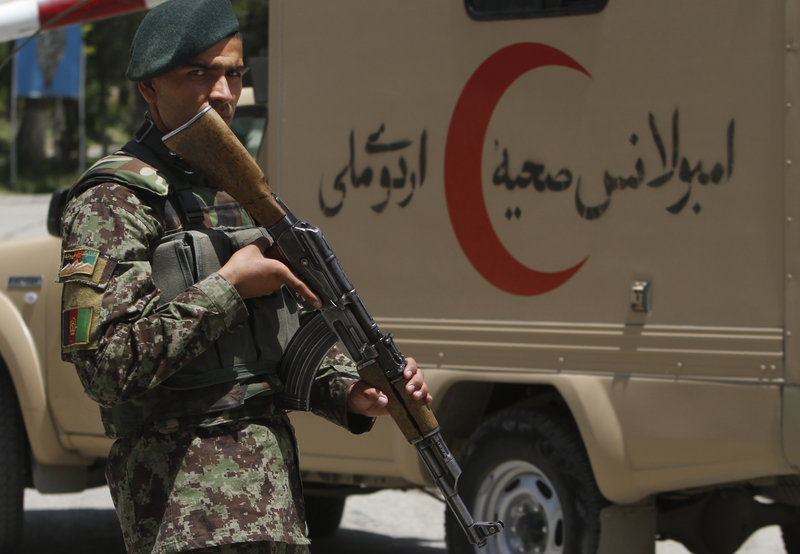KABUL, Afghanistan – A gunman in a car assassinated a former high-ranking Taliban official working to end the decade-long war in Afghanistan, dealing a powerful blow Sunday to the fragile, U.S.-backed effort to bring peace to the country.
Arsala Rahmani, a top member of the Afghan peace council and a senator in Parliament, was killed a week before a key NATO summit and just hours before President Hamid Karzai announced the third stage of a five-part transition that is supposed to put Afghan security forces in control of their country by the end of 2014.
Police said an assassin with a silencer-equipped pistol shot Rahmani, who was in his 70s, as he was riding in his car in one of the capital’s most secure areas, near Kabul University. The gunman fired from a white Toyota Corolla that pulled up alongside Rahmani’s vehicle at an intersection. Rahmani’s driver rushed him to a hospital, but he died on the way, police said.
Rahmani was a former deputy minister of higher education in the Taliban regime that was ousted by the U.S.-led invasion in 2001. He eventually reconciled with the government and was trying to set up formal talks with the insurgents.
The killing was another setback to efforts to negotiate a political resolution to the war. In September 2011, former Afghan President Burhanuddin Rabbani, who was head of the peace council, was assassinated in his Kabul home by a suicide bomber posing as a peace emissary from the Taliban.
The Taliban denied responsibility for Rahmani’s killing, although it had publicly threatened to target peace negotiators and others working with the government.
An Islamic scholar, Rahmani was appointed to the peace council when it formed in late 2010. He often spoke to Western scholars and journalists about how to settle the decade-long war, and what role the Taliban might plan in a coalition government.
Lately, he was particularly involved in encouraging militants to reintegrate, often lobbying on behalf of prisoners who promised they would put down their weapons if released from detention.
“The relatives of Talibs come to me and say, ‘If you release my brother, I will help with the peace process,’” Rahmani said in an interview last month.
Agha Jan Motasim, a member of the Taliban leadership council known as the Quetta Shura, condemned Rahmani’s assassination.
“He was a good Muslim. He was a nationalist and worked for an Islamic system in Afghanistan. We respected him,” Motasim said from Turkey, where he is recovering from gunshot wounds suffered last year in Pakistan.
The U.S.-led coalition is trying to wind down its involvement in Afghanistan by finding a political resolution to the war and training Afghan security forces to take the lead in protecting their homeland. But a recent rise in violence has raised concerns about the Afghan government’s readiness to assume responsibility for the country’s security. If the government fails, the Taliban could stage a comeback.
— The Washington Post contributed to this report.
Send questions/comments to the editors.



Success. Please wait for the page to reload. If the page does not reload within 5 seconds, please refresh the page.
Enter your email and password to access comments.
Hi, to comment on stories you must . This profile is in addition to your subscription and website login.
Already have a commenting profile? .
Invalid username/password.
Please check your email to confirm and complete your registration.
Only subscribers are eligible to post comments. Please subscribe or login first for digital access. Here’s why.
Use the form below to reset your password. When you've submitted your account email, we will send an email with a reset code.